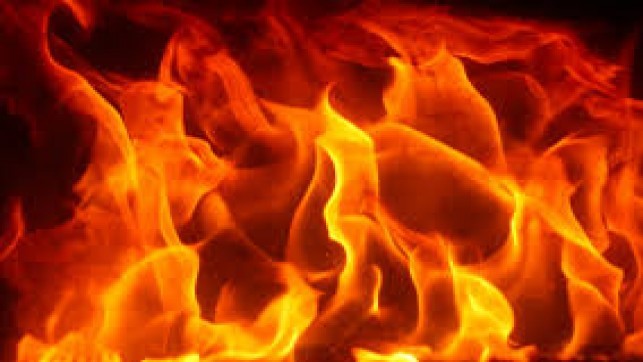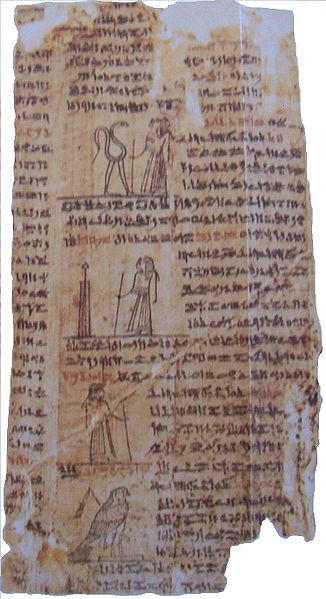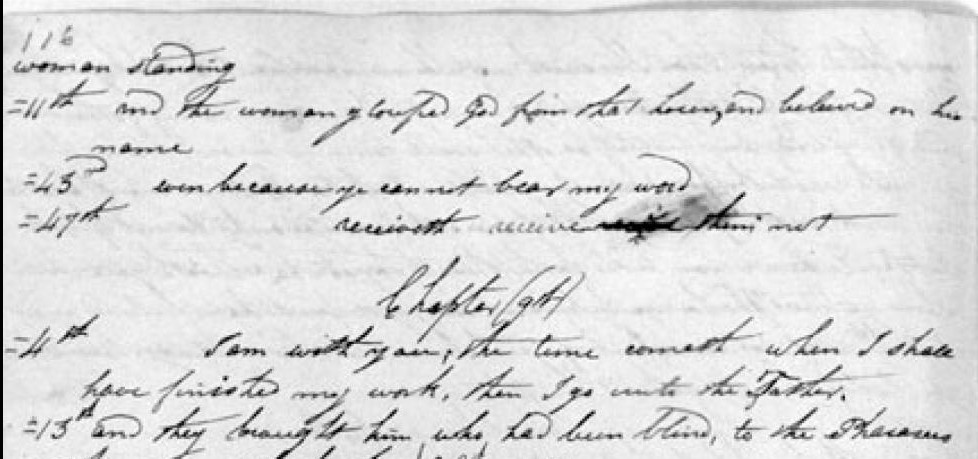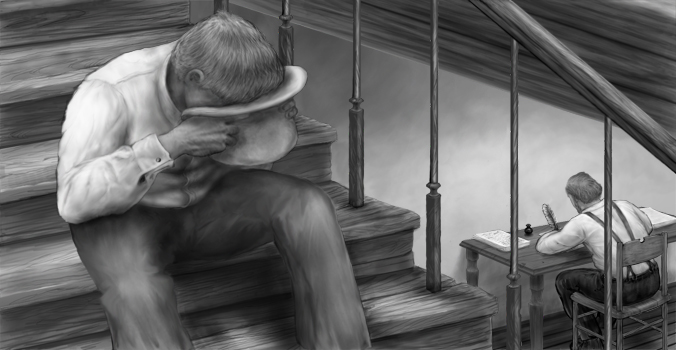Question
Gramps,
I can’t seem to get a straight answer about what Joseph Smith means in his talk at the King funeral. The righteous to dwell in everlasting burnings? Please explain. Thank you.
Tim
Answer
Dear Tim,
The phrase “everlasting burnings” appears to come from Isaiah 33:14. In the October 1973 General Conference, in his talk “Think on These Things”, Elder McConkie, quoted this scripture saying:
Now for a text I take these words of Isaiah, words which he addressed to us, to the House of Israel, to the members of the Lord’s Kingdom. He asked:
“… Who among us shall dwell with the devouring fire? who among us shall dwell with everlasting burnings?” (Isa. 33:14.)
That is, who in the Church shall gain an inheritance in the celestial kingdom? Who will go where God and Christ and holy beings are? Who will overcome the world, work the works of righteousness, and enduring in faith and devotion to the end hear the blessed benediction, “Come, and inherit the kingdom of my Father.”
From this, we understand that this phrase describes the place or state in which God dwells. I suppose your question then, is why this is described as “everlasting burnings” (or “devouring fire”). First, I think we should keep in mind that descriptions of God, his state, or his dwelling place are of necessity going to be limited by the imperfect mortal language in which they are recorded. That such things cannot adequately be described to mortals is evidenced by Paul in 1 Corinthians 2:9:
But as it is written, Eye hath not seen, nor ear heard, neither have entered into the heart of man, the things which God hath prepared for them that love him.
Those who witnessed the Savior’s visit to the Nephites similarly testify, as recorded in 3 Nephi 17:17, that such experiences are beyond mortal language:
And no tongue can speak, neither can there be written by any man, neither can the hearts of men conceive so great and marvelous things as we both saw and heard Jesus speak; and no one can conceive of the joy which filled our souls at the time we heard him pray for us unto the Father.
In addition to this witness that such experiences cannot adequately be communicated, we see that others have used similar language to convey the information as best they know how (emphasis mine):
D&C 110:3 His eyes were as a flame of fire; the hair of his head was white like the pure snow; his countenance shone above the brightness of the sun; and his voice was as the sound of the rushing of great waters, even the voice of Jehovah, saying:
(see also: Revelation 1:14)
Joseph Smith-History 1:16 … I saw a pillar of light exactly over my head, above the brightness of the sun, which descended gradually until it fell upon me.
It’s worth noting that the 1835 account of the first vision uses the phrases “pillar of fire” and “pillar of flame”.
D&C 50:24 That which is of God is light; and he that receiveth light, and continueth in God, receiveth more light; and that light groweth brighter and brighter until the perfect day.
(see also D&C 88:67)
But why not always use “light” or “bright”? Well, if we start to look at other references, we start to see that this idea of “consuming” or “burning” is just as inherent as the brightness. I’ll mention a few of these below. For more understanding, I highly recommend the LDS Scripture Citation Index maintained by BYU. This tool allows you to easily find General Conference talks and historic writings (such as Journal of Discourses or Teachings of the Prophet Joseph Smith) which reference a particular verse or verses in scripture.
The “everlasting” part of this phrase should be obvious, given that God is variously described as eternal or from everlasting to everlasting (for example, see D&C 19:1-12). The “burning” or “devouring” is described well by the first prophets of this dispensation:
God Almighty Himself dwells in eternal fire; flesh and blood cannot go there, for all corruption is devoured by the fire. “Our God is a consuming fire.” … All men who are immortal dwell in everlasting burnings.
Teachings of the Prophet Joseph Smith, p. 367
But it is now written of Him that our God is as a consuming fire, that He dwells in everlasting burnings, and this is why sin cannot be where He is.
There are principles that will endure through all eternity, and no fire can obliterate them from existence. They are those principles that are pure, and fire is made typical use of to show the glory and purity of the gods, and of all perfect beings.
Journal of Discourses 4:51, Brigham Young, “The People of God Disciplined By Trials, Etc.”
Note that Brigham Young describes fire as “typical” (meaning symbolic, or representative) of the glory of God. While it may seem strange to us to think of this as burning, look at the experience of the Nephites who heard God the Father testify of His Son (emphasis mine):
3 Nephi 11:3 … nevertheless, and notwithstanding it being a small voice it did pierce them that did hear to the center, insomuch that there was no part of their frame that it did not cause to quake; yea, it did pierce them to the very soul, and did cause their hearts to burn.
The voice of the Father alone pierced them, and caused them to quake and to feel a sensation they described as their hearts burning. From this, it is apparent that even the least exposure to God is sufficient to initiate a purifying process. This idea of the need for purification by fire is taught in various scriptures:
D&C 128:24 Behold, the great day of the Lord is at hand; and who can abide the day of his coming, and who can stand when he appeareth? For he is like a refiner’s fire, and like fuller’s soap; and he shall sit as a refiner and purifier of silver, and he shall purify the sons of Levi, and purge them as gold and silver, that they may offer unto the Lord an offering in righteousness.
While this fire will purify those who are willing to submit to the Lord, scriptures also teach that it will destroy those who will not:
D&C 133:41 And it shall be answered upon their heads; for the presence of the Lord shall be as the melting fire that burneth, and as the fire which causeth the waters to boil.
3 Nephi 25:3 And ye shall tread down the wicked; for they shall be ashes under the soles of your feet in the day that I shall do this, saith the Lord of Hosts.
Numerous other scriptures include images of heat, melting, fire, ash, and burning at the Second Coming or as punishment from the Lord (for examples, see Jude 1:7, D&C 76:105, 2 Peter 3:10-12, Amos 9:5, Mormon 9:2, D&C 101:25, Psalm 97:5, Isaiah 64:1-3).
From these references and others, should you wish to do further research, we can see that these words and phrases are used both to describe God, Christ, and the celestial kingdom, and to describe the power or effect that the full presence of a being in all their celestial glory has upon anything which is not purified from sin and other imperfections. Lest this sound a bit overwhelming, remember that this is the promised abode, or state, of those who will inherit the celestial Earth:
D&C 130:7 But they reside in the presence of God, on a globe like a sea of glass and fire, where all things for their glory are manifest, past, present, and future, and are continually before the Lord.
Also, burning is used to describe one way that we can recognize revelation from God:
D&C 9:8 But, behold, I say unto you, that you must study it out in your mind; then you must ask me if it be right, and if it is right I will cause that your bosom shall burn within you; therefore, you shall feel that it is right.
Thus, for the righteous (or those striving to be), this burning is a positive thing, a purifying process by which we may enter into the light and glory of God, through Christ our Savior. May we all live so as to inherit this glory and be filled with this light.
Gramps







